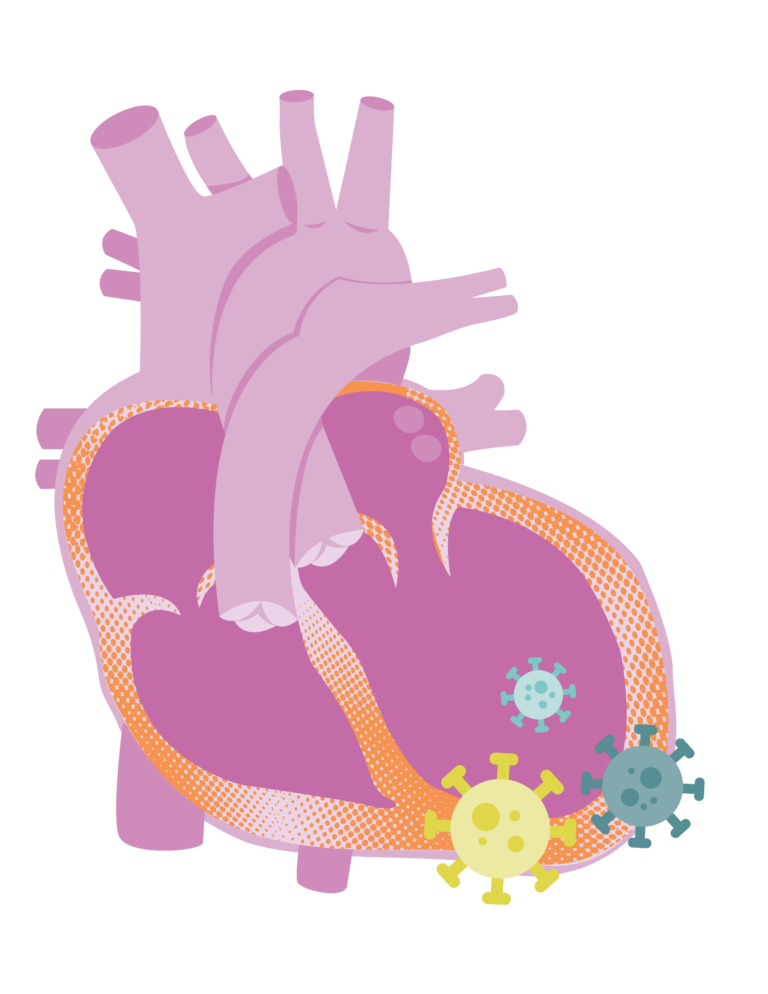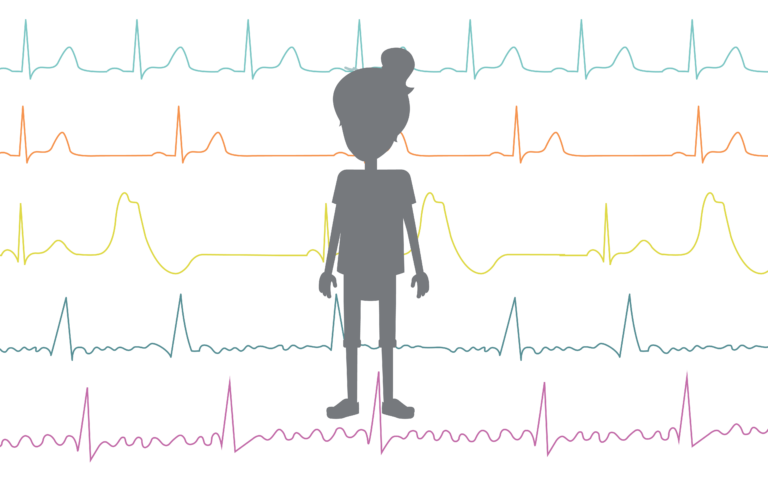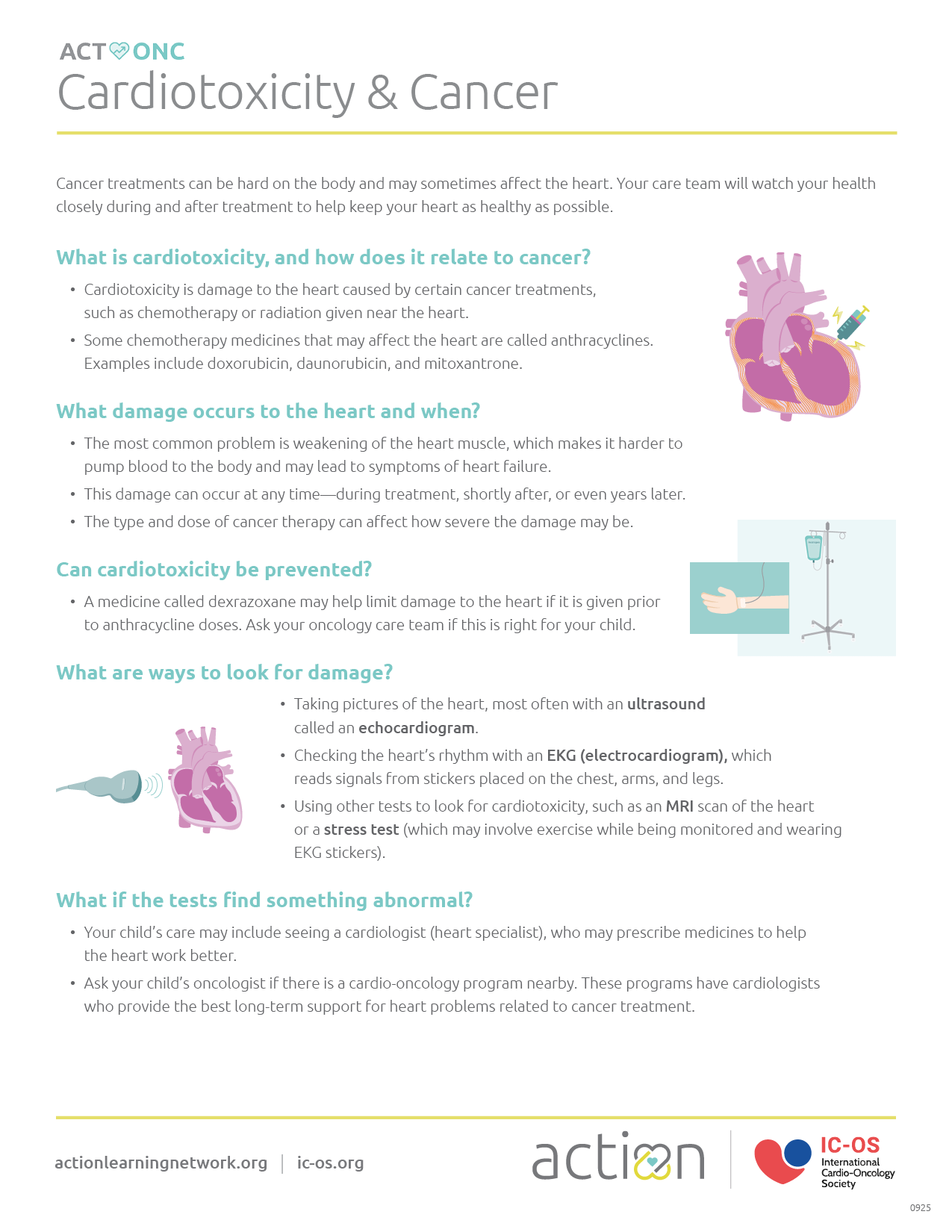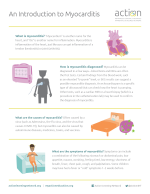Cardiomyopathy
Overview
Overview
The word cardiomyopathy means “heart muscle disease.” With cardiomyopathy, the heart muscle becomes damaged. This makes it hard for the heart to relax and pump blood to the rest of the body. Cardiomyopathy can be a mild disease and require little treatment. In some cases, it can be a severe disease, and these patients may need advanced therapies, such as medicines, VAD, or transplant.
Different types of cardiomyopathy include:
- Dilated (DCM): This is the most common form of cardiomyopathy. It occurs when the heart muscle becomes thin and stretched out and has trouble pumping blood to the body.
- Hypertrophic (HCM): This type occurs when the heart muscle is too thick. The ventricle is unable to fill normally which can lead to decreased blood being pumped to the body.
- Restrictive (RCM): This type occurs when the heart muscle is too stiff and does not relax. The ventricle is unable to fill normally which can lead to decreased blood being pumped to the body.
- Arrhythmogenic (ARVC): This rare type occurs when the heart muscle is replaced with fat and scar, which interrupts the electrical activity of the heart. It can lead to dangerous heart arrhythmias, and in some cases, poor squeezing of the heart.
- Left ventricular non-compaction (LVNC): This type occurs when the muscle of the heart (left ventricle) does not fully develop. Instead of the muscle being smooth and firm, the cardiac muscle in the left ventricle appears spongy and has deep trabeculations. Many patients with LVNC have normal cardiac function and no evidence of heart failure. In some cases, the patient with LVNC, or abnormal cardiac muscle, develops a weak heart and an impaired ability to pump blood because it either cannot completely squeeze or relax.
Often, the cause of cardiomyopathy is unknown, but some possible causes may include:
- Genetics are passed down from a family member
- Infections from common viruses if the infection injures the heart muscle
- Muscle diseases (Muscular Dystrophy)
- Chemotherapy that can be harmful to the heart
- Metabolic disorders
- Certain nutritional deficiencies
- Autoimmune problems
Tessa’s Journey
Watch what a day in the life is like for 7-year-old HeartWare HVAD patient, Tessa. Tessa has heart failure from cardiomyopathy. Medicines did not work for Tessa, so she received a HeartWare HVAD to help her heart pump blood to her body. This device allows Tessa to wait for her heart transplant. Tessa can play, dance, and go shopping on her VAD!
-
Cardiotoxicity
-
Myocarditis
-
Muscular Dystrophy
-
Hypertrophic
Cardiotoxicity

Cardiotoxicity is when heart damage is caused by chemicals or medicines, like chemotherapy. When you receive chemotherapy, you are given medicines to kill cancer cells in your body. Sometimes these drugs also hurt the normal cells in and around your heart.
Cardiotoxicity & Cancer
Cancer treatments can be hard on the body and may sometimes affect the heart. Your care team will watch your health closely during and after treatment to help keep your heart as healthy as possible. See this Cardiotoxicity & Cancer handout for more information.
Myocarditis

Myocarditis is when the wall of the heart muscle becomes inflamed, usually due to a viral infection. A severe case can keep your heart from working as it should.
Myocarditis has many causes:
- Viruses: Some of these viruses include common colds, including Influenza or Coronavirus.
- Bacteria: Some of these infections include “staph infections,” “strep infections,” and Lyme disease.
- Parasites: Some of these include those found in cat poop and insect bites.
- Fungus: Some of these infections include molds, yeast, and fungi.
- Allergies: These may be reactions to medications or recreational drugs.
- Chemicals: This includes reactions to things like radiation, radiotherapy, or other chemicals.
For more information, see the handout below:
An Introduction to Myocarditis
Muscular Dystrophy
Muscular Dystrophy (MD) is a group of diseases that make muscles become weak over time. If you have MD, it’s likely that you’ll have problems with your heart at some point in your life. In the same way that MD weakens muscles in your body, it can also weaken your heart and lead to cardiomyopathy. This is a condition in which your heart muscle struggles to pump, fill, or beat normally.
Christian & Ricky’s Stories
Christian and Ricky have Muscular Dystrophy. Both of their hearts became weakened, and heart medications did not work. They needed something to help them feel better and live longer. They each got a Ventricular Assist Device (VAD) to help their weakened hearts pump blood to their bodies. Watch as Christian and Ricky teach you about their HeartMate 3 VAD.Resources
For more information about Muscular Dystrophy, check out:
Parent Project Muscular Dystrophy
parentprojectmd.org
Hypertrophic

Hypertrophic cardiomyopathy is when your heart muscle becomes too thick. This makes it harder for the heart to relax or squeeze properly. The abnormal muscle can sometimes lead to life-threatening abnormal heart rhythms or arrhythmias.
This condition can go undiagnosed because you can often live with it without showing any symptoms.
Cardiotoxicity

Cardiotoxicity is when heart damage is caused by chemicals or medicines, like chemotherapy. When you receive chemotherapy, you are given medicines to kill cancer cells in your body. Sometimes these drugs also hurt the normal cells in and around your heart.
Cardiotoxicity & Cancer
Cancer treatments can be hard on the body and may sometimes affect the heart. Your care team will watch your health closely during and after treatment to help keep your heart as healthy as possible. See this Cardiotoxicity & Cancer handout for more information.
Myocarditis

Myocarditis is when the wall of the heart muscle becomes inflamed, usually due to a viral infection. A severe case can keep your heart from working as it should.
Myocarditis has many causes:
- Viruses: Some of these viruses include common colds, including Influenza or Coronavirus.
- Bacteria: Some of these infections include “staph infections,” “strep infections,” and Lyme disease.
- Parasites: Some of these include those found in cat poop and insect bites.
- Fungus: Some of these infections include molds, yeast, and fungi.
- Allergies: These may be reactions to medications or recreational drugs.
- Chemicals: This includes reactions to things like radiation, radiotherapy, or other chemicals.
For more information, see the handout below:
An Introduction to Myocarditis
Muscular Dystrophy
Muscular Dystrophy (MD) is a group of diseases that make muscles become weak over time. If you have MD, it’s likely that you’ll have problems with your heart at some point in your life. In the same way that MD weakens muscles in your body, it can also weaken your heart and lead to cardiomyopathy. This is a condition in which your heart muscle struggles to pump, fill, or beat normally.
Christian & Ricky’s Stories
Christian and Ricky have Muscular Dystrophy. Both of their hearts became weakened, and heart medications did not work. They needed something to help them feel better and live longer. They each got a Ventricular Assist Device (VAD) to help their weakened hearts pump blood to their bodies. Watch as Christian and Ricky teach you about their HeartMate 3 VAD.Resources
For more information about Muscular Dystrophy, check out:
Parent Project Muscular Dystrophy
parentprojectmd.org
Hypertrophic

Hypertrophic cardiomyopathy is when your heart muscle becomes too thick. This makes it harder for the heart to relax or squeeze properly. The abnormal muscle can sometimes lead to life-threatening abnormal heart rhythms or arrhythmias.
This condition can go undiagnosed because you can often live with it without showing any symptoms.


